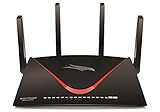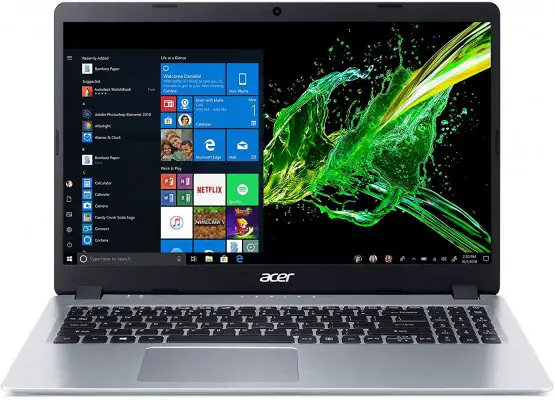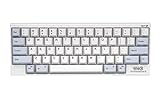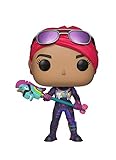Quitting Your Fulltime Job To Blog
It is many people's aspirations to one day quit their fulltime job to work on their own business; when it comes to blogging, it's very easy to get carried away by the reports of earnings and success. The reality is that blogging is just like any other kind of job; it can be monotonous, it can be demotivating and it is definitely a struggle at first. But for those who are serious about becoming professional bloggers, when is the best time to quit your fulltime job?

Blogging is difficult- stick to your day job!
I'm not one for crushing dreams or discouraging you from taking risks to achieve them. As long as you understand how difficult it can be to run a successful blog, then the decision is up to you. Of course, blogging can be very profitable; if you've ever ran a semi-successful blog you can see how putting more time into it can reap more and more benefits.
But blogging has it's own pitfalls and issues that you have to deal with; many bloggers will tell you that they often have to change with the times, and that one bad update from Google could cut their profits in half. You want to treat blogging like your own business- not just a hobby if you're considering making it your actual job.
There are many different ways people create blogs and invest in them as businesses.
You have the SEO professionals who create blogs targetting traffic, keywords and the best returns on investment. They analyse data, trends and create strategies to maximise any investment they put into blogging. Their interest in the actual blogging content may be absolutely zero; profit is all that matters.
Then you have the personal bloggers; people sharing their own stories, life-tips and other informative blog posts that happen to resonate with large swathes of people. Once these personal blogs take off, they start becoming more and more professional as they get a taste for the revenue they can bring in.
The other type of blog is a halfway-house between the two above. Generally, they want to target specific keywords and traffic, but the content is written by the author because they genuinely have a passion for it. For example, starting a gaming blog has targetted articles but it also something you're passionate about (gaming!).
All of these types of blogs take a very long time to start earning money you can live off. Most of the time a blog won't generate any revenue at all and the ones that do, usually can't sustain it.
But if you're seriously considering quitting your fulltime job to start blogging, hopefully you already know how difficult this gig is.
When To Consider Quitting Your Fulltime Job
Not everyone has a horrible job. Some people have great jobs, enjoy plenty of benefits and giving all of that up would be incredibly difficult. But there are many who look at blogging as an escape from their 9-5 grind. Blogging is often romanticised as sitting in your cosy room, drinking coffee and writing away until the sun sets. Oftentimes it's just as much of a grind as a fulltime job, and can bring other stresses that you never had when working your normal job.
But being your own boss also has many benefits. You can work whenever you want. With blogging, most of the time all you need is a laptop- the freedom to work wherever you want and whenever you want is a very attractive lifestyle. You're not limited to how much you earn (no hourly rates here!) and there are many opportunities to explore.
Anyone looking to quit their fulltime job to blog needs to have a plan. You need to consider:
- Do you currently have a blog that earns enough to live on?
- Do you have savings in case it all goes wrong?
- Do you have the motivation and self-determination to work without having a boss breathing down your neck?
- Do you have a plan for growth and strategies to maximise your business?
- Do you have a backup plan in case it doesn't work out?
All of these questions need to have an answer before you even consider leaving your fulltime job. There is a very different mentality to working on your blog as a hobby, to actually relying on it to make ends meet.
My 12 Years of experience working from home is now coming in handy for others, I love it! Here to help! https://t.co/BwTEMQcZUn
— Pat Flynn (@PatFlynn) March 18, 2020
The Best Approach To Blogging
The best part about blogging is that it is easy to start small and grow. You don't have to quit your day job to have a blog; you can write once or twice a week and still see growth overtime. Many use blogging as a side-income, even when they reach four figures in earnings every month.
If I was going to start a brand new blog today and had a fulltime job that I eventually wanted to quit, my strategy would be:
- Start the blog as side-hustle. I would come up with a content strategy for articles I wanted to write, keywords to target and my monetization strategy (display ads or affiliate programs). I would do the writing in my spare time or on weekends.
- I would start saving money from my job. If your job doesn't pay you enough to save, it's going to be really difficult to quit your day job. You need to have a pot of money to fallback on, otherwise you're just going to back yourself into a corner if blogging doesn't work out.
- After 6 months of blogging, I would ask myself these questions: Do I still enjoy blogging? Is it something I could see myself doing every single day? Is the content I've created doing well? Have I made any money from it yet?
- After a year, hopefully I've managed to save some money and that my blog is now starting to see results.
- When my blog income starts to equal the same amount of money I get from my fulltime job, only then would I consider quitting my job. I would have to be sure that I have enough to fullback on if it goes wrong and I would also have to feel confident my blog would continue to earn in the future. This could be 2 or even 3 years after starting my blog. It all depends on what kind of income you get from your job; minimum wage is a lot easier to replace with blogging income than a steady computer science salary.
I would also immerse myself in the blogging scene. You need to connect with other bloggers and get opinions on how their lifestyle is. The more information you have, the better choices you can make.
Learning about the pitfalls of blogging is also very important. Google is constantly updating it's search engine ranking algorithm; this is where a majoriy of bloggers get their traffic. If Google pushes an update that makes your blog not rank high anymore, you could see your profits half overnight. There are many examples of Google doing this, so don't think it won't happen to you.
You also need to consider your own monetization strategies. Affiliate Income can also easily be cut without warning, so it's best to diversify into multiple different programs. Display ads have been one of the most consistent earners for bloggers, but they can pay less than affiliate programs. For example, my affiliate earnings are almost three times as much as my display ad earnings.
There are other things you can do to help with the transition from fulltime job to fulltime blogging, such as lowering your overall expenditure. The cost of blogging is incredibly low considering the return you get when successful. But you can also consider cutting out lifestyle luxuries until you can meet the same income threshold as your blog.
Have you ever considered quitting your fulltime job for blogging? If you've done it, how did it go? Let us know in the comments!
















Leave A Comment